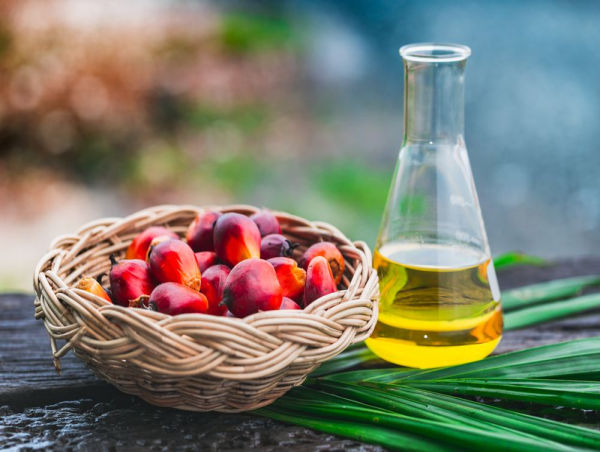The palm oil market is being driven by a complex blend of economic, technological, and geopolitical factors that contribute to growth and evolution.
NY, UNITED STATES, June 25, 2025 /EINPresswire.com/ -- Establishing a palm oil processing plant requires an in-depth market study coupled with detailed knowledge of operational components such as production processes, sourcing of raw materials, utility management, infrastructure development, machinery selection, workforce organization, logistics, and financial planning.
𝗪𝗵𝘆 𝗜𝗻𝘃𝗲𝘀𝘁 𝗶𝗻 𝘁𝗵𝗲 𝐏𝐚𝐥𝐦 𝐎𝐢𝐥 𝗣𝗿𝗼𝗰𝗲𝘀𝘀𝗶𝗻𝗴 𝗕𝘂𝘀𝗶𝗻𝗲𝘀𝘀 𝗶𝗻 𝟮𝟬𝟮𝟱?
Investing in palm oil processing in 2025 presents a compelling opportunity driven by increasing domestic consumption, evolving regulatory frameworks, and the growing demand for sustainable agri-based industries. Rising food requirements, coupled with the need for import reduction, have positioned palm oil as a strategic commodity within India's edible oil sector. Governments are encouraging domestic processing through policy incentives and support for backward integration with oil palm cultivation. At the same time, advancements in extraction and refining technologies are enhancing efficiency and yield, improving overall profitability. These converging factors highlight the critical need for scalable, sustainable palm oil processing solutions, making the sector both economically attractive and aligned with national food security and rural development goals.
𝗪𝗵𝗮𝘁 𝗶𝘀 𝐏𝐚𝐥𝐦 𝐎𝐢𝐥 𝗣𝗿𝗼𝗰𝗲𝘀𝘀𝗶𝗻𝗴?
Palm oil processing involves extracting, processing, and refining crude palm oil (CPO) from the fruit of oil palm trees (Eales genesis). These plants are typically located near plantations to ensure rapid processing, as delays can reduce oil yield and quality. The process starts with sterilizing the fruit bunches, followed by stripping the fruit, mashing, and pressing to extract CPO. The oil undergoes clarification to remove impurities and may go through further refining stages, such as degumming, bleaching, and deodorizing, producing palm oil for cooking, cosmetics, or biodiesel. Palm kernel oil is also extracted from the seeds, adding value to the process. Facilities vary in size, from small mills to large industrial complexes with advanced machinery and sustainable waste management systems. These plants are crucial in converting raw materials into products used worldwide. Given global demand, efficient and environmentally responsible manufacturing is essential for both profitability and sustainability.
𝗠𝗮𝗷𝗼𝗿 𝗙𝗮𝗰𝘁𝗼𝗿𝘀 𝗗𝗿𝗶𝘃𝗶𝗻𝗴 𝘁𝗵𝗲 𝐏𝐚𝐥𝐦 𝐎𝐢𝐥 𝗣𝗿𝗼𝗰𝗲𝘀𝘀𝗶𝗻𝗴 𝗜𝗻𝗱𝘂𝘀𝘁𝗿𝘆:
The palm oil market is driven by factors like rising global demand for edible oils, particularly in developing regions like Asia-Pacific and Sub-Saharan Africa. Palm oil’s high yield, cost-effectiveness, and versatility make it a preferred choice over other oils such as soybean and sunflower. It is a key ingredient in food products like margarine, snacks, and instant noodles, contributing to food security in many economies. Demand for biofuels, especially biodiesel, also drives the industry. Palm oil’s low production cost and high oil content make it an attractive feedstock for biofuel production in countries like Indonesia, Malaysia, and India. Regulatory mandates and incentives to reduce emissions further boost this trend, though concerns about deforestation have led to a shift toward certified sustainable palm oil (CSPO). Technological advancements in processing and refining are enhancing oil yield, quality, and sustainability. Waste-to-energy solutions, precision agriculture, and AI-driven tools are optimizing the supply chain. Additionally, sustainable practices and certification schemes like RSPO are pushing manufacturers to adopt eco-friendly technologies, despite higher compliance costs. Geopolitical factors, such as trade policies and tariffs, also impact the global palm oil market.
𝗥𝗲𝗾𝘂𝗲𝘀𝘁 𝗳𝗼𝗿 𝗮 𝗦𝗮𝗺𝗽𝗹𝗲 𝗥𝗲𝗽𝗼𝗿𝘁: https://www.imarcgroup.com/palm-oil-processing-plant-project-report/requestsample
𝗛𝗼𝘄 𝘁𝗼 𝗦𝗲𝘁 𝗨𝗽 𝐚 𝐏𝐚𝐥𝐦 𝐎𝐢𝐥 𝗣𝗿𝗼𝗰𝗲𝘀𝘀𝗶𝗻𝗴 𝗙𝗮𝗰𝗶𝗹𝗶𝘁𝘆: 𝗞𝗲𝘆 𝗢𝗽𝗲𝗿𝗮𝘁𝗶𝗼𝗻𝗮𝗹 𝗦𝘁𝗲𝗽𝘀:
𝐌𝐚𝐫𝐤𝐞𝐭 𝐄𝐯𝐚𝐥𝐮𝐚𝐭𝐢𝐨𝐧
A thorough assessment of the global palm oil market is crucial. This analysis delves into different segments of the industry as well as geographic variations in market behaviour. It also includes a detailed examination of raw material pricing and profitability within the sector.
• Segmentation Overview
• Geographical Market Analysis
• Feedstock Price Trends
• Industry Outlook and Forecast
𝐏𝐫𝐨𝐜𝐞𝐬𝐬𝐢𝐧𝐠: 𝐂𝐨𝐦𝐩𝐫𝐞𝐡𝐞𝐧𝐬𝐢𝐯𝐞 𝐎𝐩𝐞𝐫𝐚𝐭𝐢𝐨𝐧𝐚𝐥 𝐖𝐨𝐫𝐤𝐟𝐥𝐨𝐰
The report outlines a step-by-step overview of the production process, and the key operational stages involved in setting up a palm oil processing facility. It provides in-depth coverage of essential aspects such as:
• Site Selection, Land Acquisition, and Development
• Facility Design and Layout Planning
• Machinery and Equipment Requirements
• Sourcing of Raw Materials
• Storage Solutions and Packaging Systems
• Logistics and Transportation Infrastructure
• Quality Assurance Procedures
• Utility Services and Infrastructure Needs
• Workforce Structure, Labor Costs, and Staffing Needs
• Sales Strategy and Product Distribution Channels
𝐏𝐫𝐨𝐣𝐞𝐜𝐭 𝐄𝐬𝐬𝐞𝐧𝐭𝐢𝐚𝐥𝐬 𝐚𝐧𝐝 𝐂𝐚𝐩𝐢𝐭𝐚𝐥 𝐈𝐧𝐯𝐞𝐬𝐭𝐦𝐞𝐧𝐭
This section offers a comprehensive analysis of the requirements and costs associated with establishing a palm oil production facility. It includes a detailed evaluation of site selection—highlighting criteria, location relevance, environmental considerations, and related expenses.
Moreover, the report explores factors influencing plant design and layout. It also outlines the financial requirements for key components such as:
• Equipment and Machinery Costs
• Raw Material Acquisition
• Packaging and Logistics
• Utility Infrastructure
• Labor Force and Associated Costs
𝗣𝗿𝗼𝗷𝗲𝗰𝘁 𝗘𝗰𝗼𝗻𝗼𝗺𝗶𝗰𝘀 𝗮𝗻𝗱 𝗣𝗿𝗼𝗳𝗶𝘁 𝗔𝗻𝗮𝗹𝘆𝘀𝗶𝘀:
The report presents a thorough evaluation of the economic aspects of launching a palm oil processing plant. It explores every financial dimension—from initial investment to long-term profitability—offering insights into both fixed and recurring costs, revenue expectations, and financial performance metrics. Key areas covered include:
𝐂𝐚𝐩𝐢𝐭𝐚𝐥 𝐈𝐧𝐯𝐞𝐬𝐭𝐦𝐞𝐧𝐭 (𝐂𝐀𝐏𝐄𝐗)
• One-time setup costs including land acquisition, plant infrastructure, and equipment procurement.
𝐎𝐩𝐞𝐫𝐚𝐭𝐢𝐧𝐠 𝐂𝐨𝐬𝐭𝐬 (𝐎𝐏𝐄𝐗)
• Ongoing expenses such as raw material sourcing, workforce salaries, routine maintenance, and utilities.
𝐑𝐞𝐯𝐞𝐧𝐮𝐞 𝐄𝐬𝐭𝐢𝐦𝐚𝐭𝐞𝐬
• Projected income based on planned production volumes, market demand, and targeted customer segments.
𝐓𝐚𝐱𝐚𝐭𝐢𝐨𝐧 𝐚𝐧𝐝 𝐃𝐞𝐩𝐫𝐞𝐜𝐢𝐚𝐭𝐢𝐨𝐧
• Analysis of applicable taxes and asset depreciation impacting the plant’s financial statements.
𝐂𝐨𝐦𝐩𝐫𝐞𝐡𝐞𝐧𝐬𝐢𝐯𝐞 𝐅𝐢𝐧𝐚𝐧𝐜𝐢𝐚𝐥 𝐀𝐧𝐚𝐥𝐲𝐬𝐢𝐬:
• Liquidity Overview – Assessment of the plant’s short-term financial health.
• Profitability Evaluation – Insights into net margins and returns.
• Payback Period – Timeframe required to recover the initial investment.
• Net Present Value (NPV) – Discounted value of projected cash flows.
• Internal Rate of Return (IRR) – Efficiency of the investment.
• Profit and Loss (P&L) Statement – Summary of income and expenses.
𝐑𝐢𝐬𝐤 𝐀𝐧𝐚𝐥𝐲𝐬𝐢𝐬:
• Uncertainty Assessment – Evaluation of variables that could impact outcomes.
• Sensitivity Analysis – Impact of changes in key assumptions on financial performance.
𝐑𝐞𝐠𝐮𝐥𝐚𝐭𝐨𝐫𝐲 𝐚𝐧𝐝 𝐋𝐞𝐠𝐚𝐥 𝐅𝐫𝐚𝐦𝐞𝐰𝐨𝐫𝐤:
• Licensing and Permits – Mandatory approvals required to operate.
• Compliance Procedures – Legal standards and regulatory obligations.
• Certifications – Industry-specific certification needs.
𝐇𝐮𝐦𝐚𝐧 𝐂𝐚𝐩𝐢𝐭𝐚𝐥 𝐏𝐥𝐚𝐧𝐧𝐢𝐧𝐠:
• Workforce Requirement – Total staffing needs and role distribution.
• Compensation Breakdown – Detailed salary structure and benefits.
• HR Policies – Overview of recruitment, training, and employee management guidelines.
𝗞𝗲𝘆 𝗦𝘂𝗰𝗰𝗲𝘀𝘀 𝗙𝗮𝗰𝘁𝗼𝗿𝘀, 𝗥𝗶𝘀𝗸 𝗔𝘀𝘀𝗲𝘀𝘀𝗺𝗲𝗻𝘁, 𝗮𝗻𝗱 𝗦𝘁𝗿𝗮𝘁𝗲𝗴𝗶𝗰 𝗚𝘂𝗶𝗱𝗮𝗻𝗰𝗲:
The report delves into essential elements that determine the success of a palm oil processing venture, along with potential risks that could impact performance. It identifies both opportunities and challenges, helping stakeholders make informed decisions.
In addition, the report provides strategic recommendations aimed at improving operational productivity, maximizing profit margins, and strengthening market positioning.
To further support new entrants, a detailed case study of a thriving palm oil business is included. This real-world example highlights proven strategies, industry best practices, and lessons learned, serving as a practical reference for aspiring entrepreneurs and investors alike.
𝗖𝗼𝗻𝗰𝗹𝘂𝘀𝗶𝗼𝗻:
The palm oil processing industry in India presents a compelling investment opportunity for 2025, driven by rising domestic demand and supportive government policies. As the need for edible oils continues to grow and sustainability becomes a critical focus, efficient and environmentally compliant palm oil processing solutions are gaining traction. Strategic investments in this sector not only offer strong financial returns but also contribute to import substitution, rural employment, and value addition in the agri-processing ecosystem.
IMARC Group’s report, “𝐏𝐚𝐥𝐦 𝐎𝐢𝐥 𝗣𝗿𝗼𝗰𝗲𝘀𝘀𝗶𝗻𝗴 𝗣𝗹𝗮𝗻𝘁 𝗣𝗿𝗼𝗷𝗲𝗰𝘁 𝗥𝗲𝗽𝗼𝗿𝘁 𝟮𝟬𝟮𝟱: 𝗜𝗻𝗱𝘂𝘀𝘁𝗿𝘆 𝗧𝗿𝗲𝗻𝗱𝘀, 𝗣𝗹𝗮𝗻𝘁 𝗦𝗲𝘁𝘂𝗽, 𝗠𝗮𝗰𝗵𝗶𝗻𝗲𝗿𝘆, 𝗥𝗮𝘄 𝗠𝗮𝘁𝗲𝗿𝗶𝗮𝗹𝘀, 𝗜𝗻𝘃𝗲𝘀𝘁𝗺𝗲𝗻𝘁 𝗢𝗽𝗽𝗼𝗿𝘁𝘂𝗻𝗶𝘁𝗶𝗲𝘀, 𝗖𝗼𝘀𝘁 𝗮𝗻𝗱 𝗥𝗲𝘃𝗲𝗻𝘂𝗲,” serves as a comprehensive resource for setting up a processing facility. It delivers valuable insights on palm oil processing plant setup cost, processing procedures, financial analysis, capital expenditure, operating costs, return on investment, and more, empowering stakeholders to make well-informed business decisions.
𝐏𝐚𝐥𝐦 𝐎𝐢𝐥 𝗣𝗿𝗼𝗰𝗲𝘀𝘀𝗶𝗻𝗴 𝗣𝗹𝗮𝗻𝘁 𝗣𝗿𝗼𝗷𝗲𝗰𝘁 𝗥𝗲𝗽𝗼𝗿𝘁 𝗦𝘂𝗺𝗺𝗮𝗿𝘆:
• In-depth guide on establishing a facility for producing palm oil
• Insight into upcoming market dynamics and projected industry landscape for the year 2025
• Step-by-step breakdown of plant setup, encompassing core processes and operational units
• Requirements for raw materials and essential utilities outlined in detail
• Technical specifications for infrastructure development and necessary equipment
• Guidelines for staffing needs, including workforce composition and roles
• Overview of logistics, focusing on packaging solutions and transportation methods
• Financial overview highlighting potential investments, expenditure breakdown, and forecasted earnings
𝗞𝗲𝘆 𝗤𝘂𝗲𝘀𝘁𝗶𝗼𝗻𝘀 𝗔𝗱𝗱𝗿𝗲𝘀𝘀𝗲𝗱 𝗶𝗻 𝗧𝗵𝗶𝘀 𝗥𝗲𝗽𝗼𝗿𝘁:
• How has the palm oil market performed historically, and what are the future growth prospects?
• What are the key segments within the global palm oil processing market?
• How is the palm oil processing market distributed across different regions worldwide?
• What are the prevailing price trends for various feedstocks in the palm oil sector?
• How is the palm oil industry structured, and who are the major players?
• What are the core unit operations involved in running a palm oil processing facility?
• What is the total land area needed to establish a palm oil processing plant?
• How should the layout of a palm oil processing plant be designed?
• What machinery is essential for setting up a palm oil processing plant?
• What raw materials are required for operating a palm oil processing plant?
𝗔𝘀𝗸 𝗔𝗻𝗮𝗹𝘆𝘀𝘁 𝗳𝗼𝗿 𝗖𝘂𝘀𝘁𝗼𝗺𝗶𝘇𝗮𝘁𝗶𝗼𝗻: https://www.imarcgroup.com/request?type=report&id=7331&flag=C
𝗔𝘃𝗮𝗶𝗹𝗮𝗯𝗹𝗲 𝗖𝘂𝘀𝘁𝗼𝗺𝗶𝘇𝗮𝘁𝗶𝗼𝗻 𝗢𝗽𝘁𝗶𝗼𝗻𝘀:
The report offers flexibility to adapt the project according to specific business needs and strategic goals. Customizable elements include:
• Plant Location
Assistance in selecting the most suitable site based on logistics, cost efficiency, and market access.
• Production Capacity
Tailoring the plant’s output levels to align with business objectives and market demand.
• Machinery Type
Selection from fully automated, semi-automated, or manual machinery setups, depending on budget and operational preference.
• Machinery Supplier List
Identification and recommendation of reliable equipment manufacturers and vendors suited to your chosen setup.
𝗛𝗼𝘄 𝗜𝗠𝗔𝗥𝗖 𝗚𝗿𝗼𝘂𝗽 𝗖𝗮𝗻 𝗛𝗲𝗹𝗽?
IMARC Group offers comprehensive consulting services tailored to the needs of entrepreneurs and investors aiming to establish a palm oil processing facility. From conducting in-depth market evaluations and feasibility studies to assisting with regulatory approvals, company incorporation, and factory setup, IMARC ensures end-to-end support. The firm also provides expert guidance on equipment selection, raw material sourcing, workforce planning, and strategic sales development. With its extensive industry knowledge and hands-on approach, IMARC empowers stakeholders to make informed decisions and achieve sustainable growth in the evolving palm oil sector.
𝐒𝐞𝐫𝐯𝐢𝐜𝐞𝐬:
• Plant Setup
• Factoring Auditing
• Regulatory Approvals and Licensing
• Company Incorporation
• Incubation Services
• Recruitment Services
• Marketing and Sales
𝗕𝗿𝗼𝘄𝘀𝗲 𝗠𝗼𝗿𝗲 𝗥𝗲𝗹𝗮𝘁𝗲𝗱 𝗥𝗲𝗽𝗼𝗿𝘁𝘀:
Chloro Acetyl Chloride Manufacturing Plant Project Report 2025: https://www.imarcgroup.com/chloro-acetyl-chloride-manufacturing-plant-project-report
Paraloid B-72 Manufacturing Plant Project Report 2025: https://www.imarcgroup.com/paraloid-b-72-manufacturing-plant-project-report
Calcium Tungstate Manufacturing Plant Project Report 2025: https://www.imarcgroup.com/calcium-tungstate-manufacturing-plant-project-report
Elena Anderson
IMARC Services Private Limited
+1 631-791-1145
[email protected]
Legal Disclaimer:
EIN Presswire provides this news content "as is" without warranty of any kind. We do not accept any responsibility or liability for the accuracy, content, images, videos, licenses, completeness, legality, or reliability of the information contained in this article. If you have any complaints or copyright issues related to this article, kindly contact the author above.
![]()






